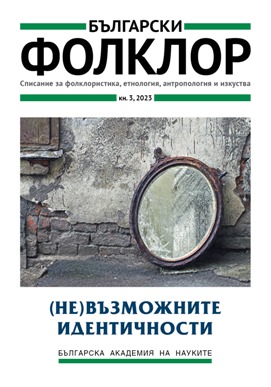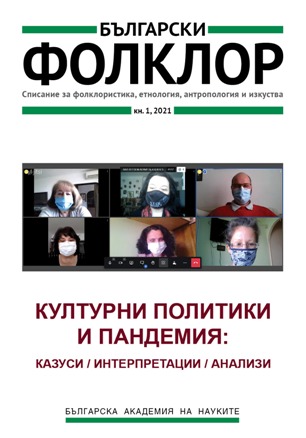
Национална научна кръгла маса „Динамика на социалното пространство“
Scientific life, conference report
More...We kindly inform you that, as long as the subject affiliation of our 300.000+ articles is in progress, you might get unsufficient or no results on your third level or second level search. In this case, please broaden your search criteria.

Scientific life, conference report
More...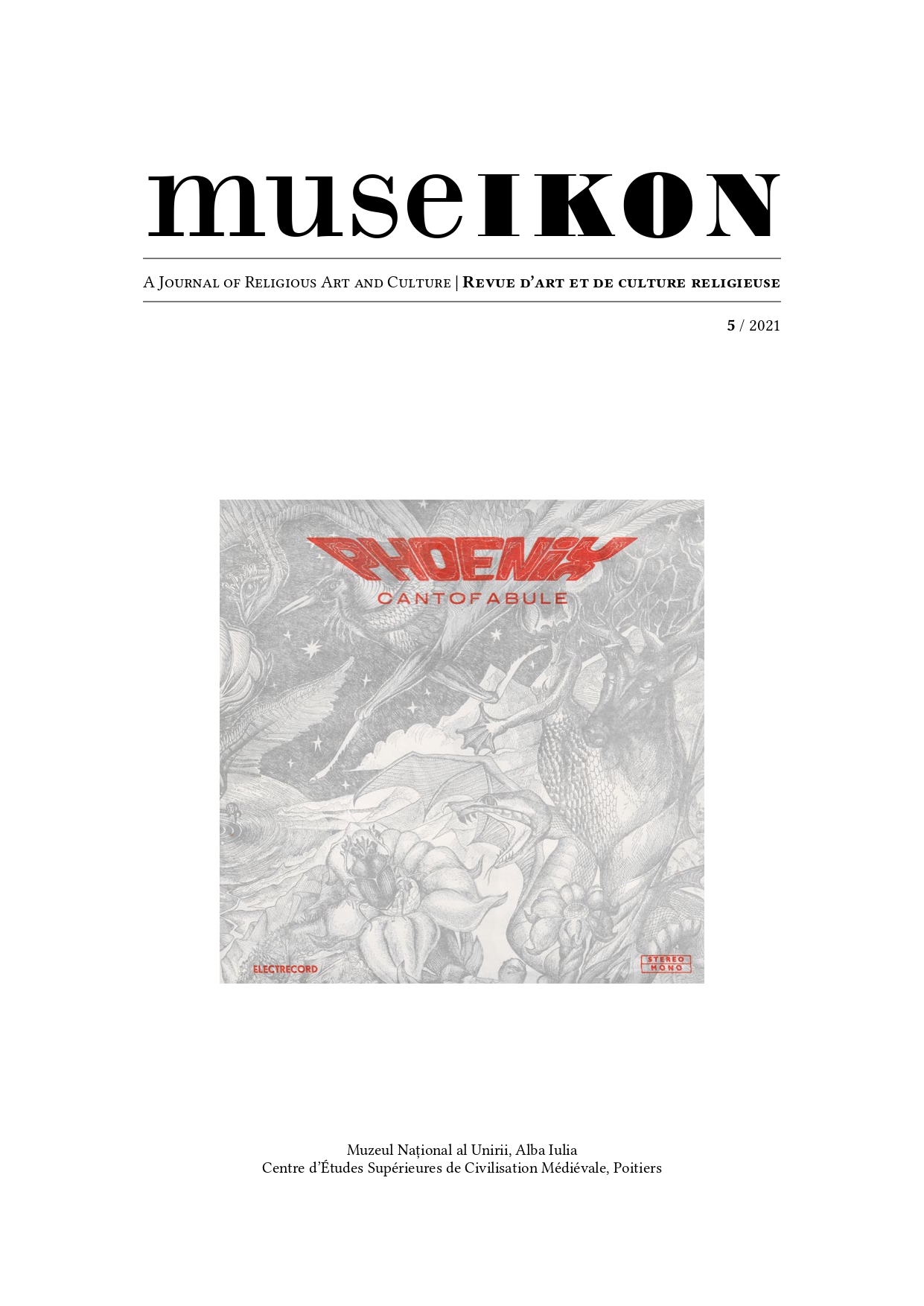
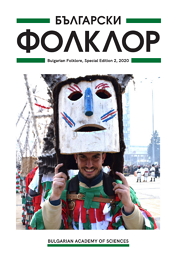
This article is dedicated to the fortieth anniversary of the founding of the Bulgarian Folklore Journal. The reflections on the Journal which are discussed here are made in the context of the political and sociocultural development of Bulgaria, as well as in the context of national and international traditions in the study of folklore. At the same time, these reflections address changes in scientific paradigms and theoretical approaches, the problems of the existing boundaries between disciplines, the re-definition of scientific scope and newly defined fields of research. The interdisciplinary nature of the Journal, the development of its scientific profile, and its transformation into a journal for scholarly research in the field of folklore studies, ethnology and anthropology in the 1990s are given special attention. Editorial politics and practices, as well as different aspects of its theoretical sensibility and applied aims are traced. The place of the Journal among Bulgarian humanities periodicals and its international visibility are also highlighted.
More...
The term soft power has become a catch-all-phrase for public and cultural diplomacy since Joseph Nye introduced it in 1990. India has had several historical and cultural advantages regarding its influence in foreign countries. While India and Indians enjoyed goodwill in most countries, the sudden interests in India among the policymakers, businesses, and politicians were mainly after the 1992 economic liberalization that had opened the Indian markets to foreign investments. Besides the nation-branding exercises globally, New Delhi employed soft power instruments in countries it deemed to have more significant interests, from traditional allies like Bhutan and Afghanistan to the countries in the West in the last three decades. Nevertheless, how successful has India been in exploiting its cultural linkages and using its soft power in its branding? This question becomes pertinent as, in recent years, India has often received negative press coverage in international media, and on several freedom/democratic indices, its rankings have gone down. As India celebrates 75 years of independence as Azadi ka Mahotsav (a grand celebration of independence), this paper assesses the scope of its soft power as a foreign policy instrument, points out its shortcomings, and recommends the possibilities.
More...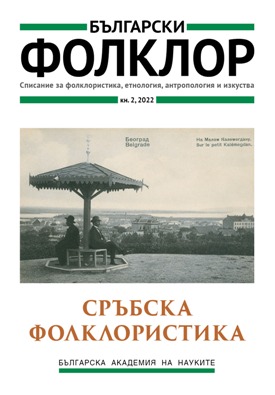
The paper presents the experience and the results of а long-term research of Serbian epics, primarily of singing to the accompaniment of gusle – the most common and preferred form of performing epic songs. Studying the tradition and the personalities proves to be important for the ethnomusicological and interdisciplinary understanding of this genre. The focus on this solo performative genre makes the relations with the guslars (epic singers who accompany their singing with gusle – a one-string bowed instrument), as primary collaborators in the research, especially intensive and complex. In relation to that, the implementation of 2003 Convention for the Safeguarding of the Intangible Cultural Heritage in Serbia is recognized as an opportunity as well as an ethical obligation of ethnomusicologists to achieve reciprocity in cooperation with guslars by supporting the safeguarding of epic singing to the accompaniment of gusle. This type of cooperation has brought new challenges and encouraged deeper reflections on social, i.e. socio-cultural responsibility and its impact on national ethnomusicology. Linking research results with cultural practice is one of the distinct challenges in contemporary humanities, so this paper in a broader sense is a contribution to the applied humanities.
More...
The paper examines the folklore understanding of weather conditions, archaic conceptualization of cataclysms and contemporary newspaper/internet articles on similar topics in a comparative context. It turns out that modern civilization inherits part of the rhetorical repository and imaginary of traditional cultures when it comes to meteorological phenomena, employing them in a new context in the already recognized global “discourse of fear/intimidation” (F. Furedi, D. Altheide, P. Cap). At the same time, this rhetorical identification is seductive insofar as all its parameters (the planet has warmed since pre-industrial times, glaciers are melting, sea levels have risen, a large percentage of forests emitting oxygen have been cut down, the ozone layer and ecosystem-regulating animal species vanish, humanity has increased enormously) speak that on a global level something dramatic is happening and that we are not just witnessing another of the great resurrections of history and its (mis)use.
More...
Book Review: Disenchantment, Re-enchantment and Folklore Genres. Ed. by Nemanja Radulović, Smiljana Đorđević Belić. Belgrade: Institute for Literature and Arts, 2021. 286 pp. ISBN 978-86-7095-286-7
More...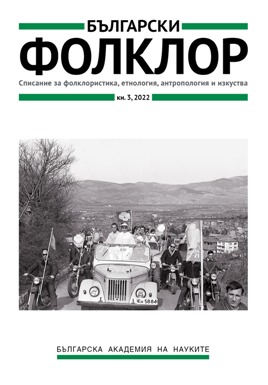

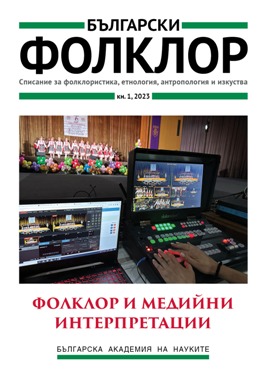
The ways in witch advertising uses folklore motifs are rather varied and interesting. In this article, we first clarify what the essence of advertising is at a theoretical level, who it is aimed at, what is presented and how it is presented, and of course, also who orders the advertisement. This synthesizing theoretical introduction is necessary in order to fully understand the differences between audio advertising, visual and audio-visual presentation, as well as how contemporary advertising permeates the media environment including Internet and social networks. Also significant is the psychological effect on the costumers, which uses a number of traditional stereotypes and expected behaviour patterns. Subsequently, we will look in more detail at the role of folklore and especially folklore narratives in advertising, including its changes in the last century, which we will illustrate with two specific examples. The next part of the article consists of an analysis of two contemporary advertising campaigns with dominant folklore motifs in the Czech media environment (Equa bank and Seznam.cz), in which we show in detail the way they communicate with the costumer, the folklore stereotypes used and the comments of the clients and creators of these advertisements regarding the expected effect of the campaign.
More...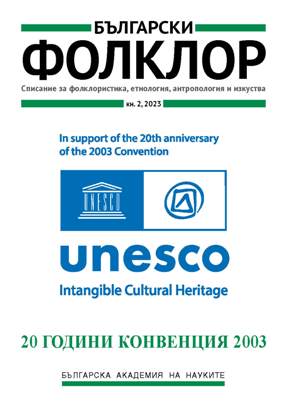

The paper analyses the evolution of the notion of cultural heritage from a comparative perspective and verifies the impact produced by the UNESCO Convention for the Safeguarding of the Intangible Cultural Heritage in 9 countries (Mexico, Brazil, Italy, Jordan, Cyprus, Spain, Burkina Faso, Korea, Japan).
More...
As UNESCO’s Convention for the Safeguarding of the Intangible Cultural Heritage turns twenty, the article focuses on its primary aim of safeguarding people’s living cultural traditions, practices, and expressions at the local level. Safeguarding measures are promoted throughout the Convention and related texts, but it is arguably the Register of Good Safeguarding Practices through which actual approaches are presented as being put to the test. The article uses the Register as a launchpad for examining community-based approaches to safeguarding ICH, and distilling “good” considerations for building ethical and equitable collaborations – from the first steps of initiatives to over the long term.
More...
This article reviews two co-existing and mutually conflicting concepts in Bulgaria: the one of folklore and the policies of its conservation in the course of the 20th century, and the one of intangible cultural heritage (ICH) and the efforts for safeguarding it following the adoption, in 2003, of the relevant UNESCO Convention. A comparison is made between the folklore festivals, characteristic of the second half of the 20th century, and the Living Human Treasures Bulgaria National System, created in 2008 as one of the fundamental cultural policies of the Republic of Bulgaria in this sphere, which has resulted in the compiling of the National Representative List of the Intangible Cultural Heritage. Based on observations made during several of its consecutive iterations conducted so far, the article seeks to outline important aspects and issues of the rationalization of ICH and its safeguarding at the present moment. The author draws on her experience as a member of the team of scholars at the Institute of Ethnology and Folklore Studies with Ethnographic Museum of the Bulgarian Academy of Sciences (IEFSEM – BAS), which has been participating actively at expert level in the implementation of the 2003 Convention in Bulgaria.
More...
The 2003 Convention and Its Implementation in Bulgaria
More...
The 2003 Convention and Its Implementation in Bulgaria
More...
The 2003 Convention and Its Implementation in Bulgaria
More...
The 2003 Convention and Its Implementation in Bulgaria
More...
